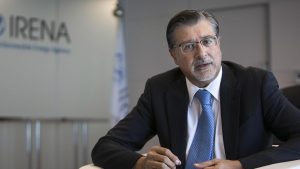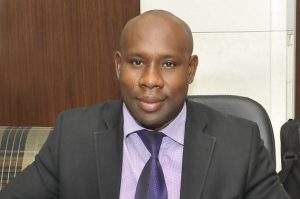On the side-line of the recent Power for All inspired declaration of commitment to the distributed renewable energy (DRE) market in Nigeria by key sector players, the interim president of the sector’s trade association – Renewable Energy Association of Nigeria (REAN), Mr. Segun Adaju, took questions from OGN. He disclosed the intentions of REAN for the market, as well as his strategy to dislodge fuel generators from homes and small businesses in Nigeria. Excerpts.
What does this ‘call to action’ signify to operators in Nigeria’s DRE market?
This call to action that we’ve had today is amazing. I think this is one of the very few events that has brought stakeholders across board in one room to commit to actions that would drive developments in the DRE sector of Nigeria. It is about us saying ‘I commit to this’ and no longer about the regular conferences and talks.
For me, this is incredible and will be a major catalyst for the DRE sector in Nigeria with all the commitments from stakeholders including project developers.
What do you expect to happen next from here?
I see a lot of actions as next steps, especially with the commitments which are public declarations that all of us have reeled out. Specifically, REAN has stated what it would do in the next three months and so we now have people who would ask us what we have done after these periods. I see a lot of people going back to sit down and put action on the commitments they have made.
I also see a lot of collaboration and partnership coming out of here. There are partnerships that REAN has got from here that we didn’t know it would be this strong, especially with the NIPC which has recognised REAN with strong commitment to follow. The Lux Terra Leadership Foundation as well and others have also indicated that there would be partnerships going forward.
There is also the awareness that everybody in the room has got and would now go out there to educate people about the DRE sector and its capacities.
Back in the room, you said you want to displace generators from Nigerian homes, what do you mean by that?
Currently Nigeria has the highest per capita of generators in the world, and I say it jokingly that Nigerians are already used to distributed energy – you have a block of flat and each flat has its generating set instead of a collective generating set for all the flats. People (in Nigeria) rely more on self-generation and that is why it would be easy for DRE to quickly ramp up and even leapfrog the grid.
In small communities, people don’t even believe in mini grid that would serve all people, they rather want to have the ‘I pass my neighbour’ generators, and we have realised that this could be the strategy for DRE.
We also realised that the expenditure patterns of those who own these small generators are such that we can create affordability from and so they spend about N30,000 to buy the small generators, spend N1000 every day on fuel and that translates to N30,000 for fuel in a month, multiply that by 12 months in the year, and so on. What we are trying to do to displace generators is to adopt that same business model.
“People (in Nigeria) rely more on self-generation and that is why it would be easy for DRE to quickly ramp up and even leapfrog the grid.”
With reports of entrenched interests in the generator business in Nigeria, do you foresee any form of opposition?
To me, I don’t see any of that from anyone. We are doing our business just like the generator guys and there are needs to be served in the country. I have never been confronted by anybody, we have powered over 200 barbers’ shops across the country in my company and no one has asked me to stop or confronted us on this. The beneficiaries are meanwhile seeing the difference and switching to us.
The market is too big for any monopolistic tendencies because there will still be room for everyone and I want to take away the generators at home, in barbers’ shops, and other SMEs and replace with solar.
We’ve seen some remarkable developments in the DRE sector in 2017, are you able to access the sector’s pace at the moment?
I know the sector is getting a lot of attention at the moment. No doubt, this is the biggest market in Africa for DRE, and before now, people had been wary about getting in, but the support of government’s policy to the sector is encouraging the market growth and that is why you see the likes of Lumos, Azuris coming. But the numbers they have done has not scratched anything yet.
While I welcome the entry of international players in the market because it sets and uphold standards for other players in the sector, I can tell you that Nigerians are creative and would replicate the same thing that happened in the telecoms sector in this sector.





